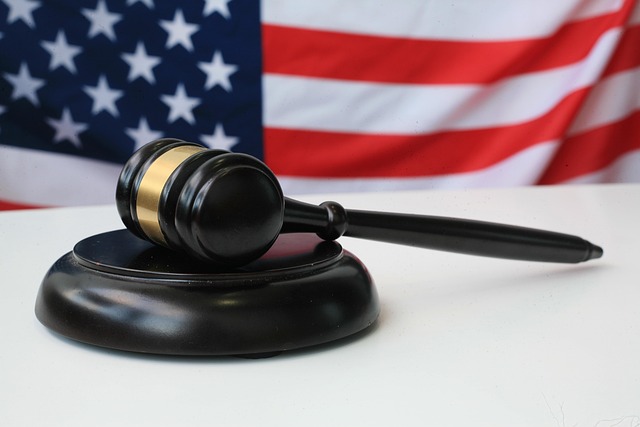Securities class actions and plea bargaining significantly shape the outcome of financial litigation, with both serving as tools for accountability and risk management. Plea bargaining allows defendants to negotiate reduced penalties or favorable sentencing terms in exchange for a guilty plea, impacting sentencing severity based on evidence strength, cooperation, and legal tactics. In securities cases, settlement negotiations play a similar role, influencing outcomes like monetary fines, executive resignations, and corporate reforms while aiming to balance leniency with justice. High-profile settlements underscore the substantial consequences of plea bargaining in holding individuals and companies accountable for financial misconduct.
“Securities class actions, a powerful legal tool for investors, have evolved into complex battles in financial litigation. This article explores the intricate world of these lawsuits, focusing on key aspects like understanding the legal framework, the role and impact of plea bargaining, and factors influencing sentencing severity.
We delve into settlement negotiations, where agreed-upon penalties differ from actual fines, and present compelling case studies of high-profile securities class action settlements. Uncovering the intricacies of plea bargaining’s impact on sentencing severity offers valuable insights for investors and legal professionals alike.”
- Understanding Securities Class Actions: A Legal Framework
- The Role of Plea Bargaining in Financial Litigation
- Analyzing the Impact on Sentencing: Factors and Considerations
- Actual vs. Agreed-Upon Penalties: Negotiating Settlement Terms
- Case Studies: High-Profile Securities Class Action Settlements
Understanding Securities Class Actions: A Legal Framework

Securities class actions are a legal mechanism designed to protect investors from fraudulent or negligent conduct by corporations and their officers. These cases operate under a unique framework, leveraging collective action to hold accountable those who have violated securities laws. At the heart of this process lies the concept of standing, ensuring that only affected parties can bring forward claims. This approach not only promotes efficiency but also safeguards against frivolous lawsuits.
In terms of sentencing, the impact of plea bargaining cannot be overlooked. While avoiding indictment is a strategic goal for many defendants in securities-related cases, the respective business outcomes can vary significantly. General criminal defense strategies may include negotiating plea deals that mitigate potential penalties, focusing on reducing the severity of charges rather than outright exoneration. Such negotiations are influenced by various factors, including the strength of the evidence and the cooperation provided to prosecutors.
The Role of Plea Bargaining in Financial Litigation

In financial litigation, plea bargaining plays a significant role, offering a strategic element to both plaintiffs’ and defendants’ attorneys. This process involves negotiating an agreement where a defendant pleads guilty to certain charges in exchange for reduced penalties or favorable sentencing terms. The impact of plea bargaining on sentencing severity cannot be understated, as it can lead to substantial reductions in fines and potential prison sentences.
Effective plea bargaining strategies require a deep understanding of all stages of the investigative and enforcement process, including white collar defense tactics. By employing these techniques, legal teams can achieve extraordinary results for their clients while ensuring accountability for financial misconduct. This balanced approach is crucial, as it facilitates fair resolutions, respects due process, and reflects the evolving landscape of financial regulation.
Analyzing the Impact on Sentencing: Factors and Considerations

The impact of plea bargaining on sentencing severity is a complex factor that has garnered significant attention in the legal realm. When defendants opt for plea deals, it can significantly alter the trajectory of a case, often resulting in reduced sentences compared to what might be imposed at a jury trial. This strategic move reflects an unprecedented track record of success for many defense attorneys, who argue that their clients benefit from avoiding the risks and uncertainties associated with court proceedings.
Several key considerations influence this process. The nature and severity of the crime, the defendant’s prior convictions (if any), and their willingness to cooperate with prosecutors are pivotal elements. Additionally, the prosecutor’s discretion plays a substantial role in negotiating plea agreements, which can lead to more lenient sentences or even dismissals in some cases. These factors collectively shape the overall sentencing outcome, underscoring the importance of legal counsel in navigating the intricate process of plea bargaining and its subsequent impact on judicial decisions.
Actual vs. Agreed-Upon Penalties: Negotiating Settlement Terms

In securities class action lawsuits, one critical phase involves negotiating settlement terms, where the actual penalties faced by defendants can significantly differ from the agreed-upon amounts. This process often resembles plea bargaining in criminal cases, with companies and individuals facing charges for white-collar and economic crimes. The impact of this negotiation on sentencing severity is profound; it allows for a degree of leniency or a more favorable outcome for the accused, especially when they cooperate fully with investigators.
The strategy behind this approach is to encourage settlements without prolonged litigation, which can be costly and time-consuming for all parties involved. For his clients, securing a settlement through negotiation might mean avoiding the high-stakes consequences of a trial, including potential jail time or substantial fines. As such, it’s a crucial aspect of managing risk in complex legal matters, particularly when dealing with intricate financial matters and their associated penalties.
Case Studies: High-Profile Securities Class Action Settlements

In recent years, several high-profile securities class action settlements have highlighted the significant impact of plea bargaining on sentencing severity. These cases serve as compelling examples of how companies and individuals can be held accountable for financial misconduct. For instance, a leading investment bank was fined billions after pleading guilty to charges of securities fraud, wire fraud, and conspiracy. The settlement not only included substantial monetary penalties but also resulted in the resignation of key executives and a significant restructuring of the company’s compliance programs.
Another notable case involved a tech giant that settled allegations of accounting irregularities, with the agreement including a record-breaking fine and enhanced corporate governance measures. These settlements demonstrate the power of plea bargaining as a tool to not only punish wrongdoers but also deter future misconduct within the white collar defense community. Furthermore, they illustrate how philanthropic and political communities can work together to ensure complete dismissal of all charges is not an option for those who engage in financial fraud, ultimately upholding the integrity of the market.
Securities class actions play a pivotal role in holding corporations and individuals accountable for financial misconduct. By understanding the legal framework, exploring plea bargaining strategies, and analyzing sentencing factors, both plaintiffs and defendants can navigate these complex cases effectively. The case studies highlighted demonstrate that settlements often reflect a delicate balance between penalizing wrongdoers and ensuring fair compensation for victims. Ultimately, the outcome of securities class actions depends on navigating the intricate interplay between plea bargaining and sentencing severity in the pursuit of justice.






